Every effort needs to be made to try and offset the costs of Katrina and Rita by reductions in other government programs, especially those that are wasteful, duplicative and ineffective.
BEN BERNANKEEducation – lifelong education for everyone – from toddlers to workers well advanced in their careers – is indeed an excellent investment for individuals and society as a whole.
More Ben Bernanke Quotes
-





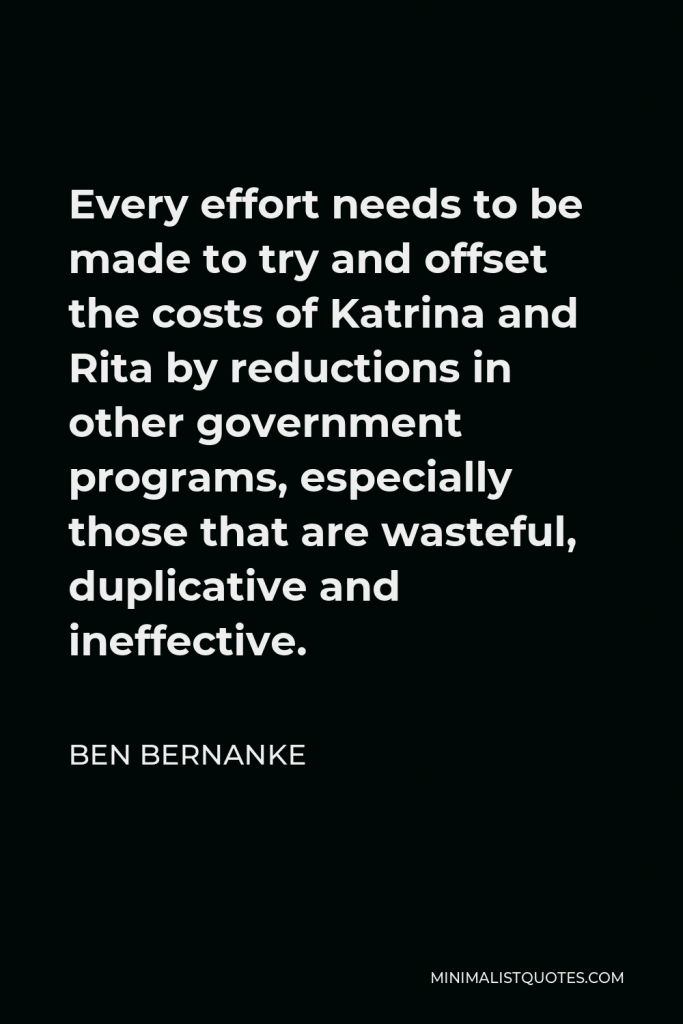

-






I don’t think that Chinese ownership of U.S. assets is so large as to put our country at risk economically.
BEN BERNANKE -





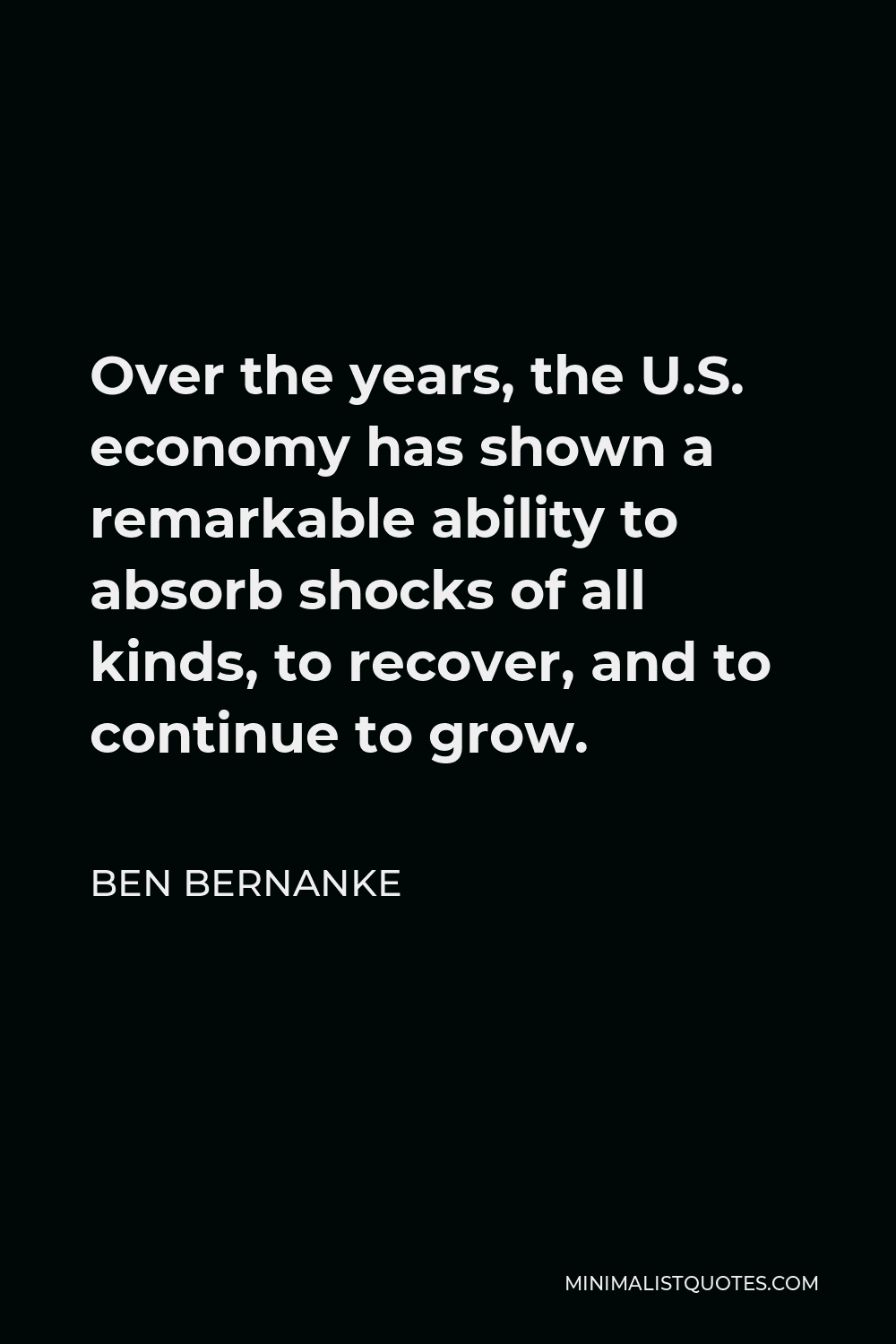
Over the years, the U.S. economy has shown a remarkable ability to absorb shocks of all kinds, to recover, and to continue to grow.
BEN BERNANKE -





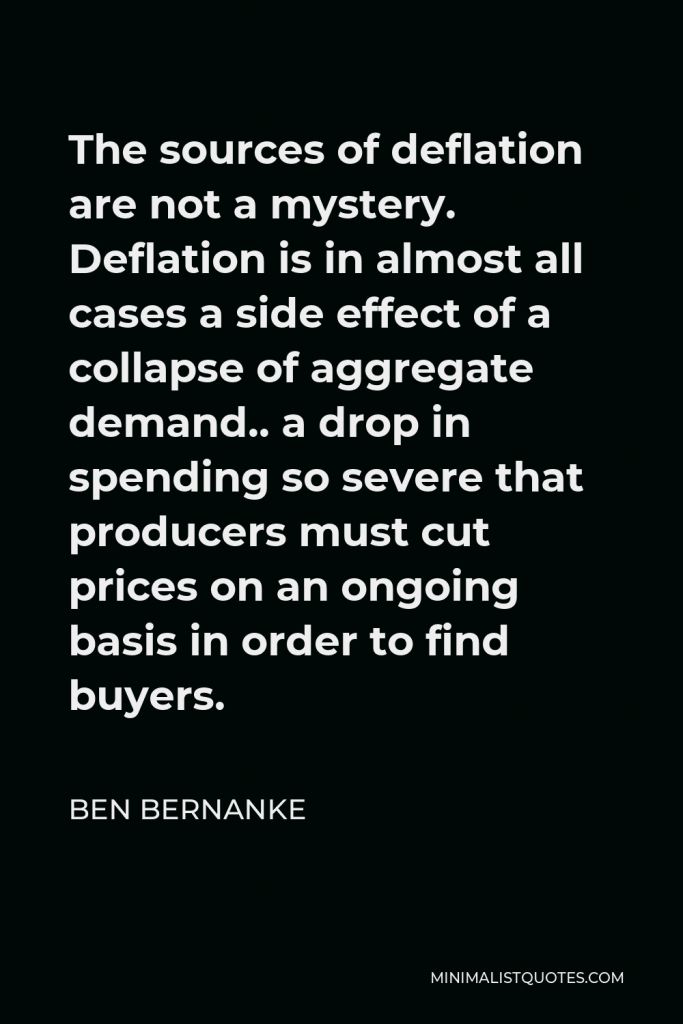

The sources of deflation are not a mystery. Deflation is in almost all cases a side effect of a collapse of aggregate demand.. a drop in spending so severe that producers must cut prices on an ongoing basis in order to find buyers.
BEN BERNANKE -







Investment banks manage to go bankrupt through their investment-banking activities, commercial banks manage to go bankrupt through their commercial-banking activities.
BEN BERNANKE -





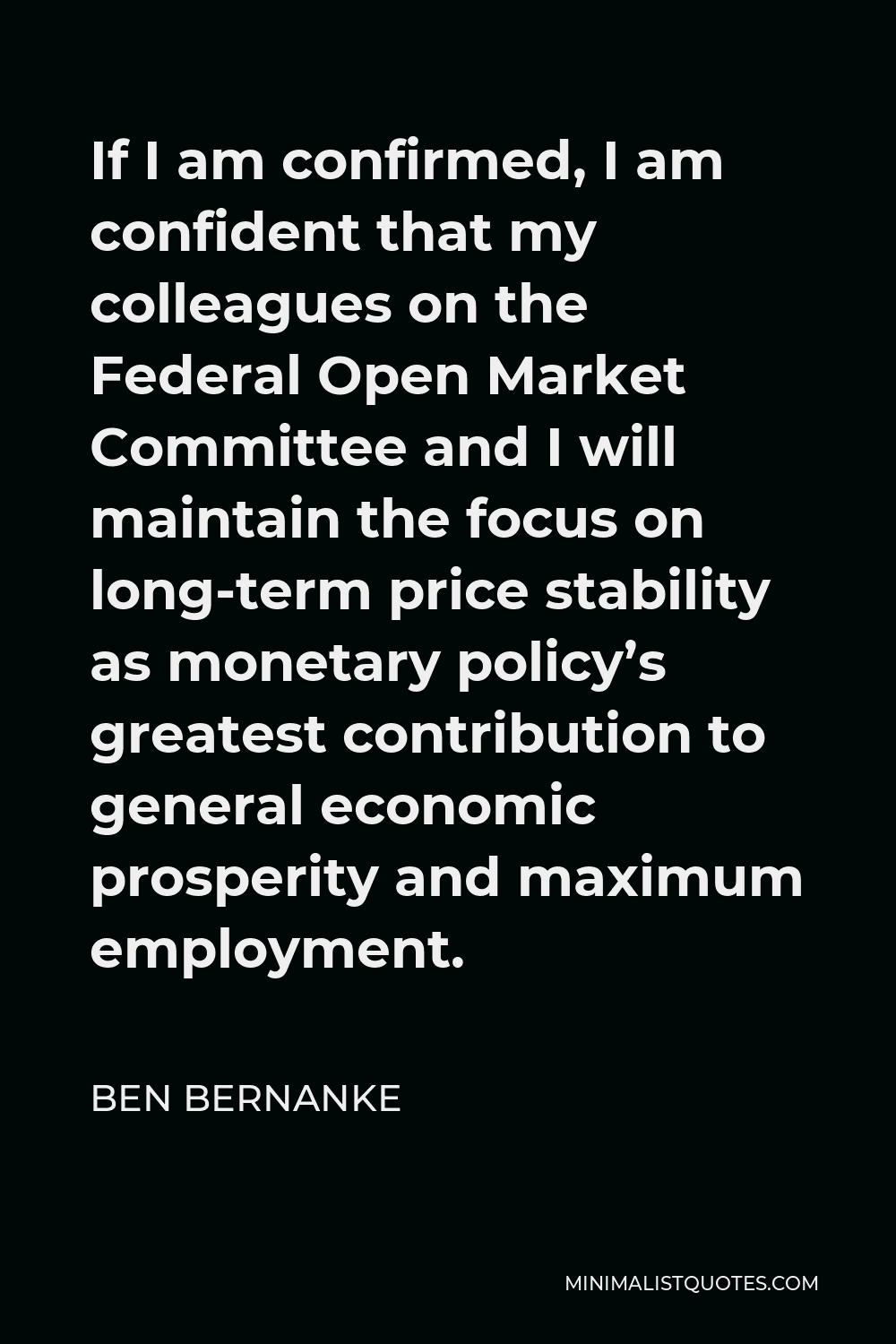
If I am confirmed, I am confident that my colleagues on the Federal Open Market Committee and I will maintain the focus on long-term price stability as monetary policy’s greatest contribution to general economic prosperity and maximum employment.
BEN BERNANKE -





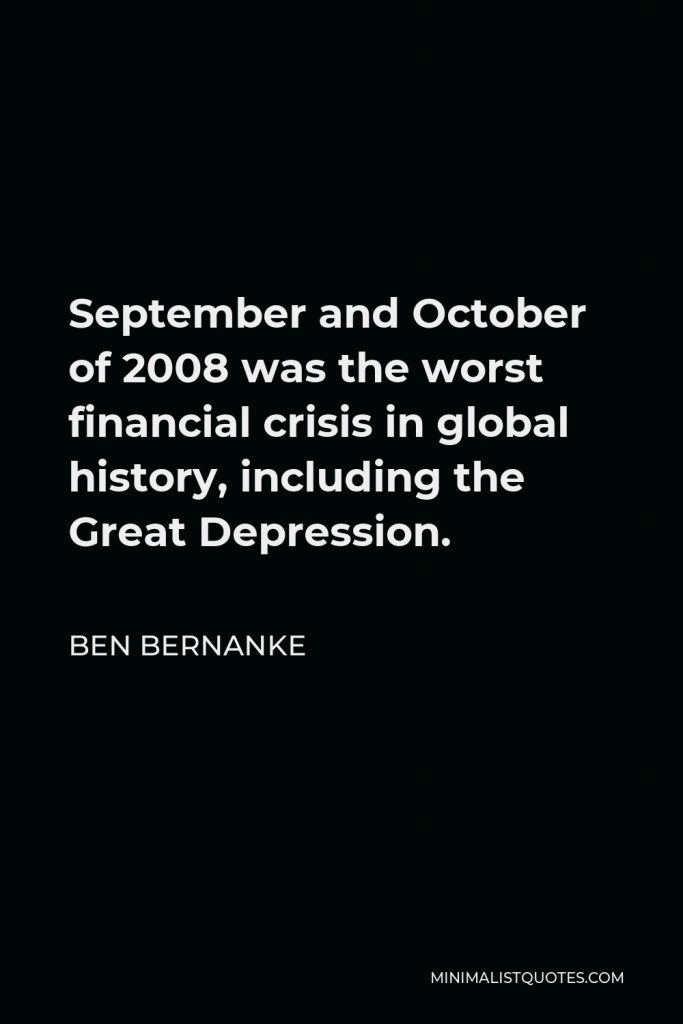

September and October of 2008 was the worst financial crisis in global history, including the Great Depression.
BEN BERNANKE -





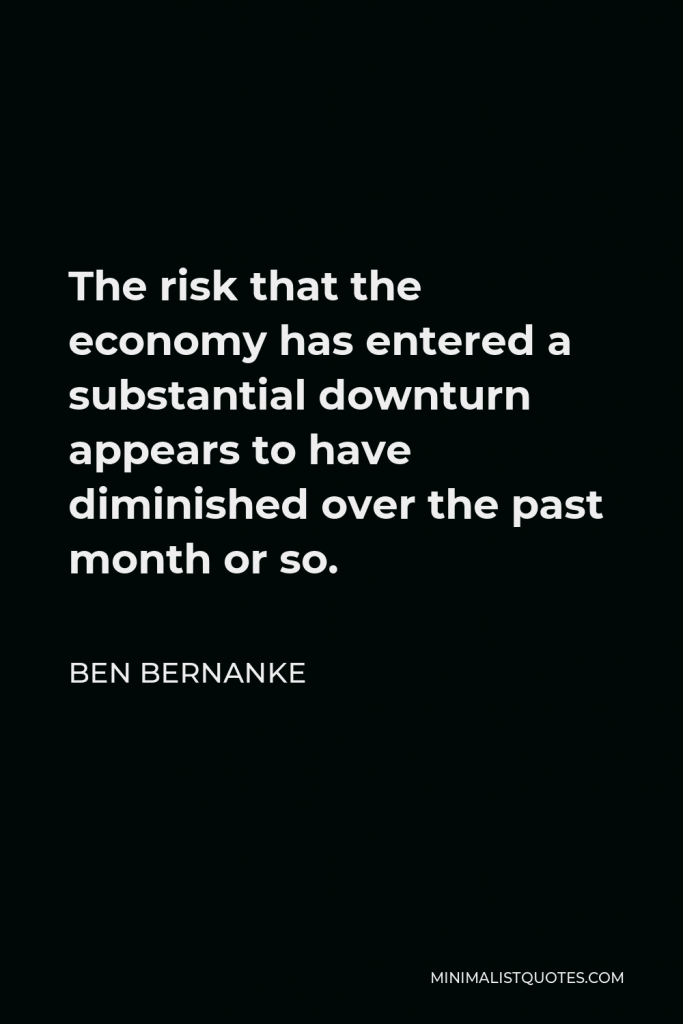

The risk that the economy has entered a substantial downturn appears to have diminished over the past month or so.
BEN BERNANKE -







Speaking as somebody who has been happily married for 35 years, I can’t imagine any choice more consequential for a lifelong journey than the choice of a traveling companion.
BEN BERNANKE -





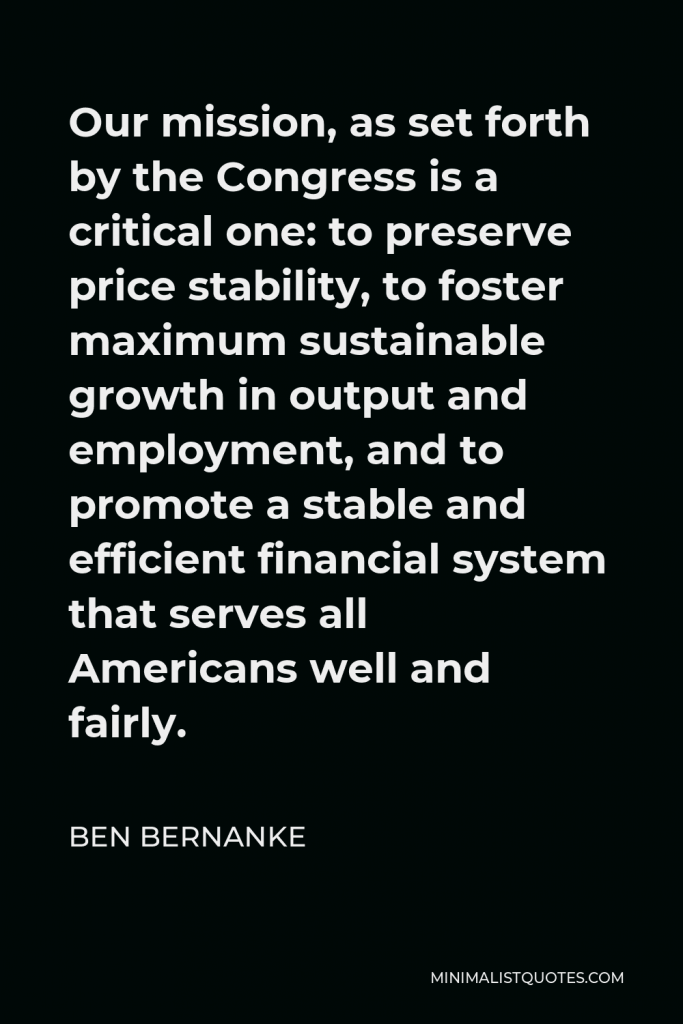

Our mission, as set forth by the Congress is a critical one: to preserve price stability, to foster maximum sustainable growth in output and employment, and to promote a stable and efficient financial system that serves all Americans well and fairly.
BEN BERNANKE -







Both humanity’s capacity to innovate and the incentives to innovate are greater today than at any other time in history.
BEN BERNANKE -







A money-financed tax cut is essentially equivalent to Milton Friedman’s famous ‘helicopter drop’ of money.
BEN BERNANKE -





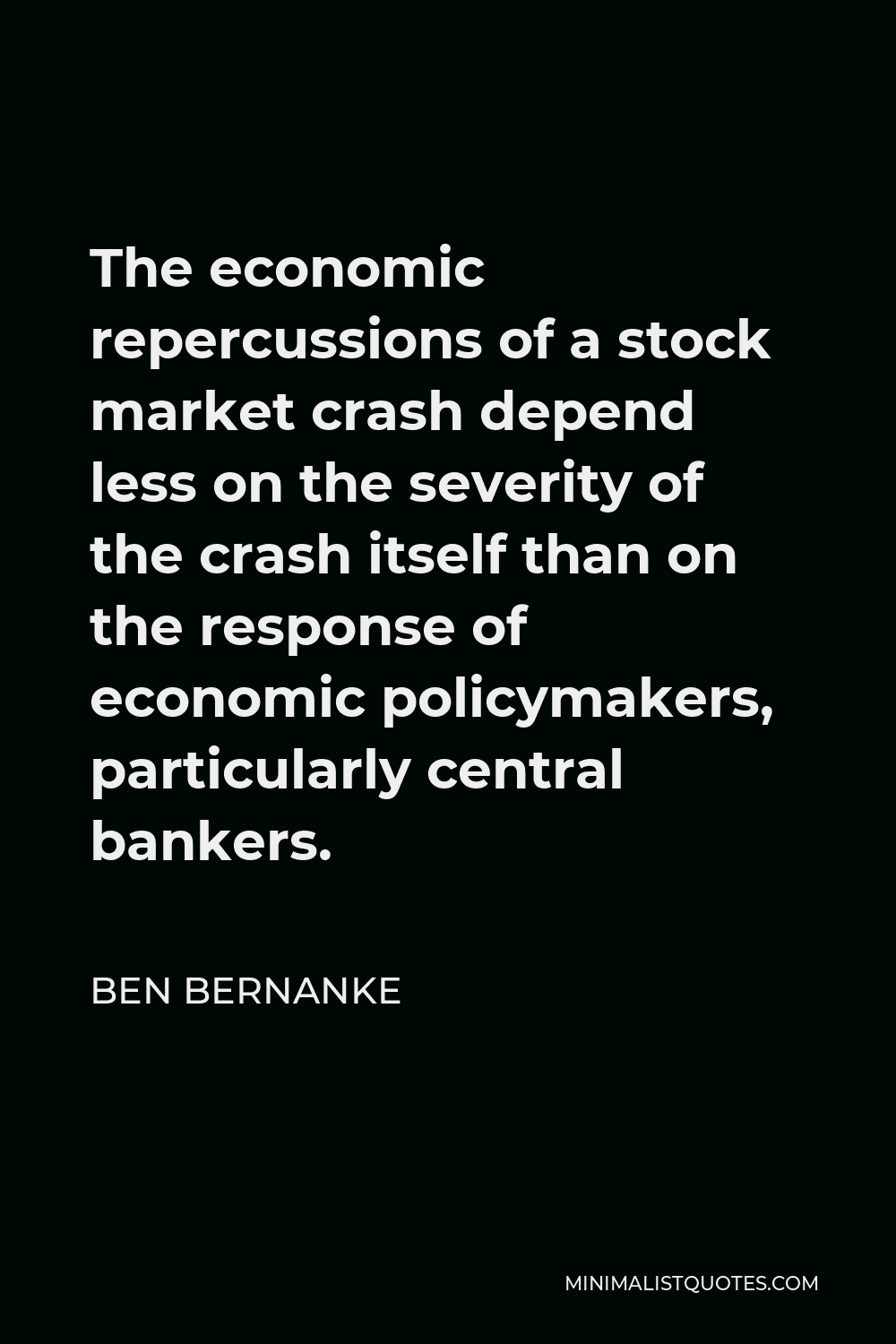
The economic repercussions of a stock market crash depend less on the severity of the crash itself than on the response of economic policymakers, particularly central bankers.
BEN BERNANKE -







If you are not happy with yourself, even the loftiest achievements won’t bring you much satisfaction.
BEN BERNANKE -







The GSEs are adequately capitalized. They are in no danger of failing.
BEN BERNANKE -





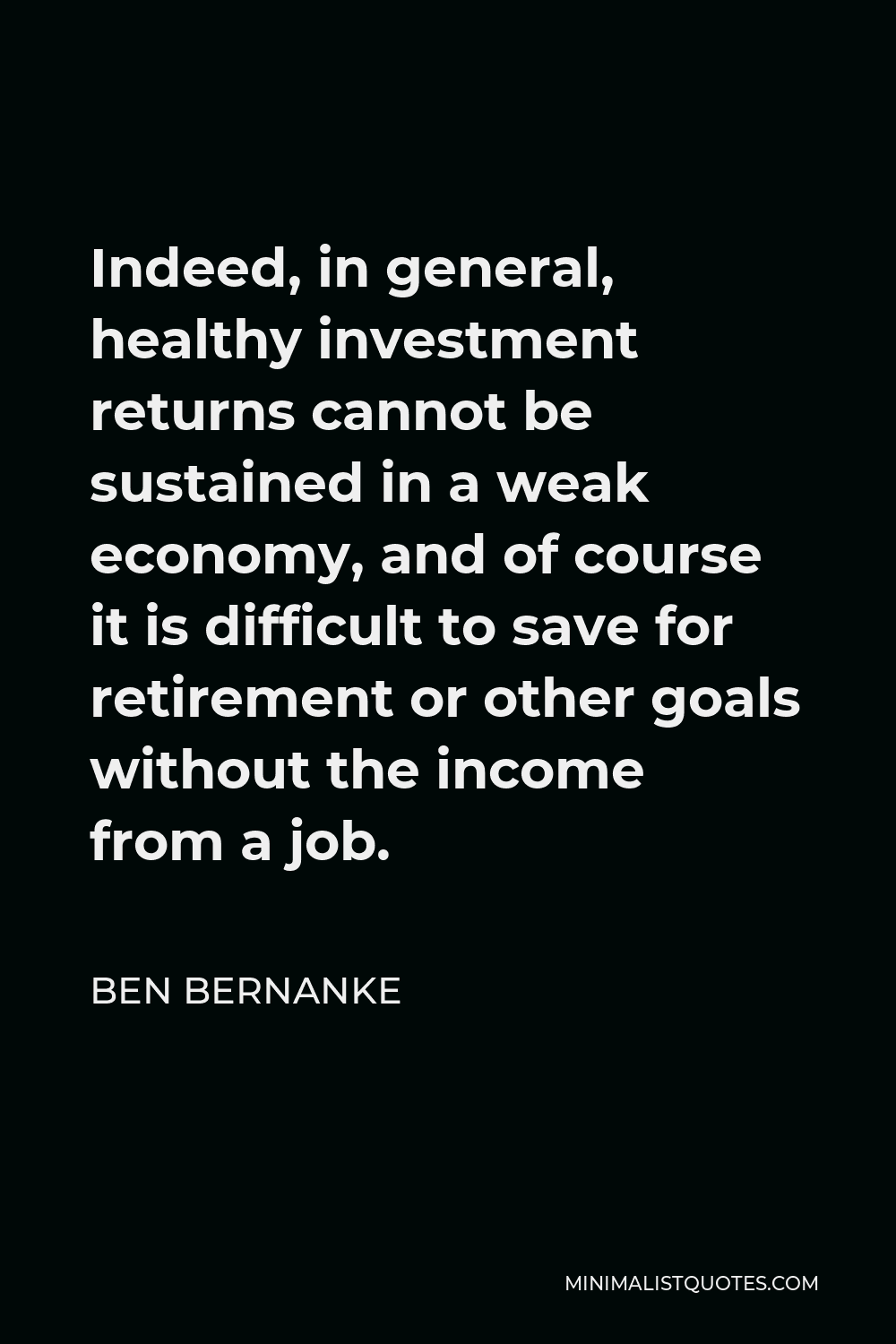
Indeed, in general, healthy investment returns cannot be sustained in a weak economy, and of course it is difficult to save for retirement or other goals without the income from a job.
BEN BERNANKE







